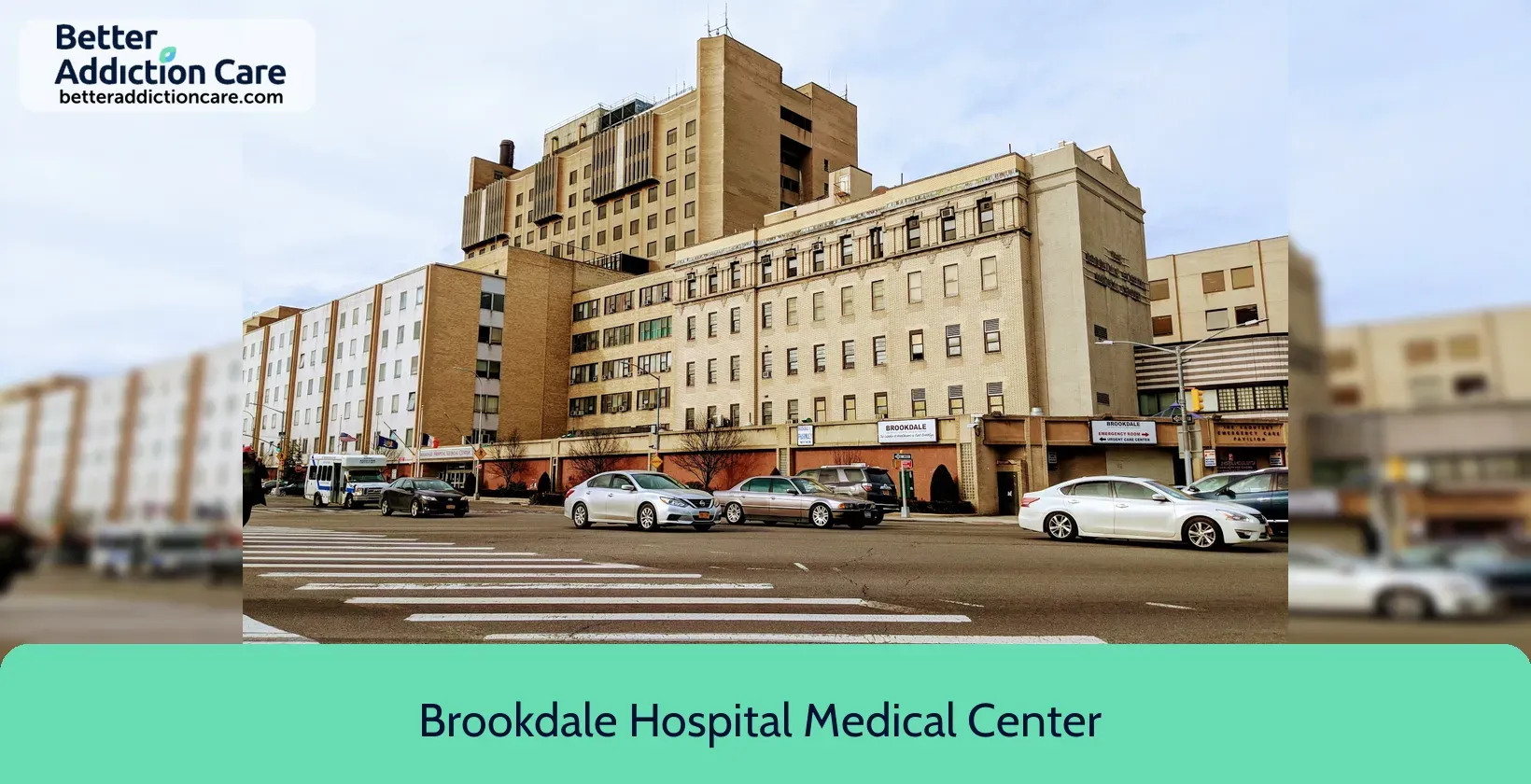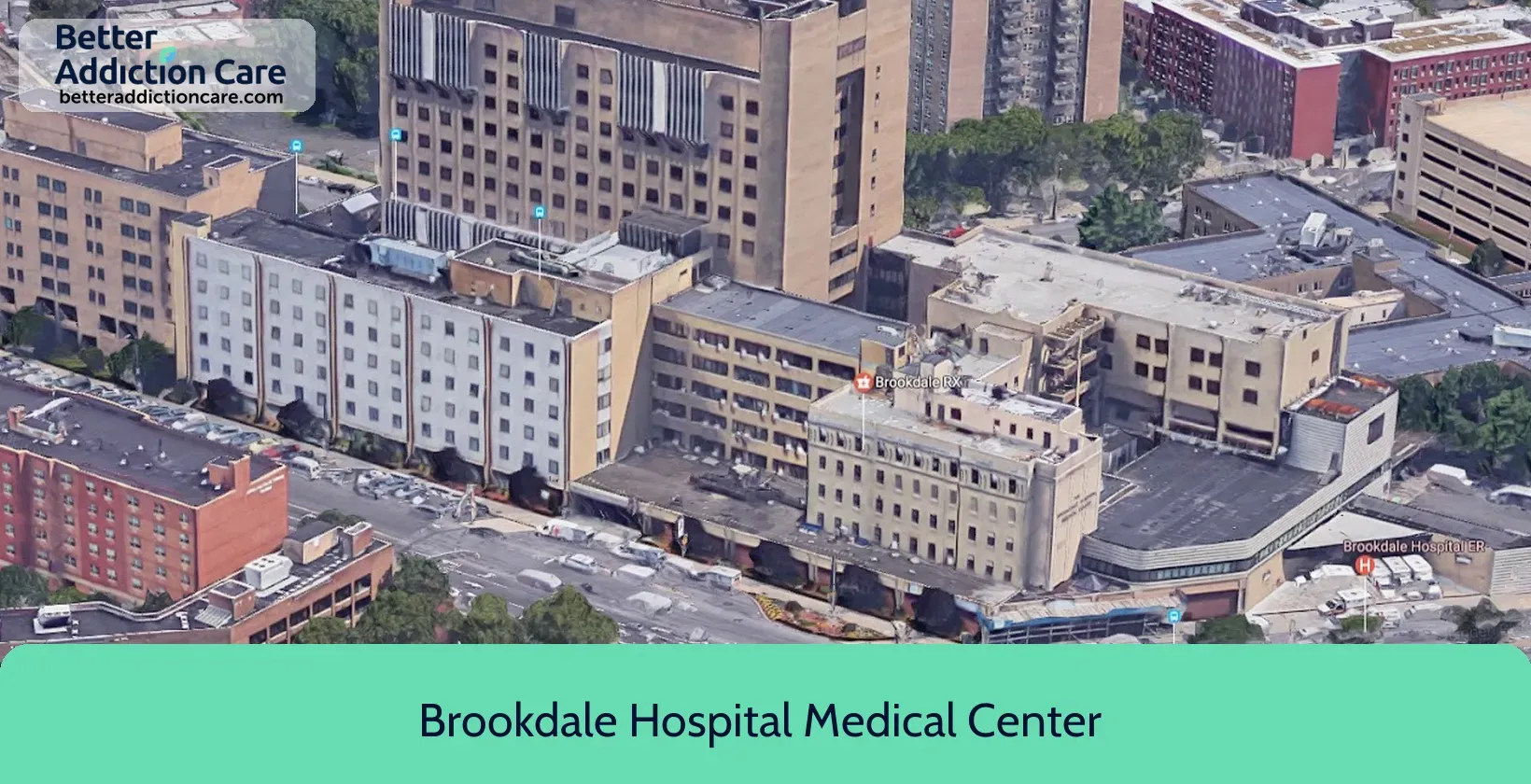Brookdale Hospital Medical Center - Department of Psychiatry
Overview
Brookdale Hospital Medical Center - Department of Psychiatry is a mental health treatment center for people seeking treatment near Kings County. As part of their treatment modalities for recovery, Brookdale Hospital Medical Center - Department of Psychiatry provides couples/family therapy, group counseling, and cognitive behavioral therapy during treatment. Brookdale Hospital Medical Center - Department of Psychiatry is located in Brooklyn, New York, accepting cash or self-payment for treatment.
Brookdale Hospital Medical Center - Department of Psychiatry at a Glance
Payment Options
- Cash or self-payment
- Medicaid
- Medicare
- State-financed health insurance plan other than Medicaid
- Private health insurance
Assessments
- Screening for tobacco use
- Comprehensive mental health assessment
- Comprehensive substance use assessment
Age Groups
- Seniors or older adults
- Young adults
- Children/adolescents
- Adults
- Seniors
Ancillary Services
- Court-ordered outpatient treatment
- Diet and exercise counseling
- Family psychoeducation
- Integrated primary care services
- Suicide prevention services
Highlights About Brookdale Hospital Medical Center - Department of Psychiatry
6.71/10
With an overall rating of 6.71/10, this facility has following balanced range of services. Alcohol Rehabilitation: 8.00/10, Drug Rehab and Detox: 6.00/10, Insurance and Payments: 6.00/10, Treatment Options: 6.85/10.-
Alcohol Rehabilitation 8.00
-
Treatment Options 6.85
-
Drug Rehab and Detox 6.00
-
Insurance and Payments 6.00
Treatment At Brookdale Hospital Medical Center - Department of Psychiatry
Treatment Conditions
- Alcoholism
- Mental health treatment
- Substance use treatment
- Co-occurring Disorders
Care Levels
- Hospital inpatient/24-hour hospital inpatient
- Outpatient
Treatment Modalities
- Couples/family therapy
- Group counseling
- Cognitive behavioral therapy
- Integrated Mental and Substance Use Disorder treatment
- Activity therapy
Ancillary Services
Languages
- Sign language services for the deaf and hard of hearing
- Spanish
- Other languages (excluding Spanish)
- Any Chinese Language
- Creole
Additional Services
- Pharmacotherapies administered during treatment
- HIV testing
Special Programs
- Clients with co-occurring mental and substance use disorders
- Clients with HIV or AIDS
- Clients who have experienced trauma
- Children/adolescents with serious emotional disturbance (SED)
- Persons 18 and older with serious mental illness (SMI)
Get Help Now
Common Questions About Brookdale Hospital Medical Center - Department of Psychiatry
Contact Information
Other Facilities in Brooklyn

6.68

6.71

6.91

7.14

7.48

6.65

6.59

6.80
DISCLAIMER: The facility name, logo and brand are the property and registered trademarks of AAA Health - Chemical Dependency Outpatient Program, and are being used for identification and informational purposes only. Use of these names, logos and brands shall not imply endorsement. BetterAddictionCare.com is not affiliated with or sponsored by AAA Health - Chemical Dependency Outpatient Program.


